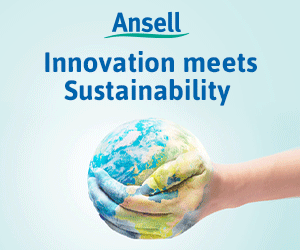MHRA temporarily suspends sales of silicone implants manufactured by Silimed of Brazil
After an inspection by the German Notified Body found contamination on some medical implants
The UK's Medicines and Healthcare products Regulatory Agency (MHRA) has suspended the sales of silicone implants made by Brazil's Silimed, and other regulators have followed suit, while the manufacturer insists that its devices are safe and questions the MHRA's criteria for particle levels.
Last Friday (25 September) the MHRA issued a Medical Device Alert and temporarily suspended Silimed's CE certificate, following an inspection by the German Notified Body which found contamination on some devices.
According to the MHRA, a number of devices distributed in the UK by Eurosurgical are affected, including silicone implants for plastic surgery: breast implants, pectoral implants, gluteal implants, calf implants, implants for hand surgery, tissue expanders, facial implants, nostril retainers, and suspension sheets for breast surgery. In addition, silicone invasive devices such as sizers for silicone implants and silicone implants for general surgery in blocks and sheets.
Implants for urology: testicular implants, penile implants, vaginal stents and periuretheral constrictors supplied in the UK by Genesis Medical are also affected.
TüV Süd, a global testing, certification, inspection and training provider, also suspended the CE Mark for all products manufactured by Silimed. The CE Mark on a product is a manufacturer’s declaration that the product complies with essential requirements of relevant European health, safety and environmental protection legislation.The British Association of Aesthetic Plastic Surgeons and British Association of Plastic, Reconstructive and Aesthetic Plastic Surgeons said in a statement: 'Plastic surgeons have been informed not to implant these devices until further assessments have taken place and the CE Mark reinstated – we are not aware of any documented patient safety issues.'
Australia's Therapeutic Goods Administration (TGA) said it had received information from the Australian sponsor of Silimed implants that the unknown particles have been identified as silica and cotton.
Plastic surgeons have been informed not to implant these devices until further assessments have taken place
As a precautionary measure and in consultation with the TGA, the Australian distributor of Silimed's products, Device Technologies, has been contacting surgeons who have been supplied with these implants to postpone any planned implant surgeries.
Device Technologies has also ceased supply of all Silimed products until the situation is clarified.
TGA, like the MHRA, said there has been no indication that these issues would pose a threat to the implanted person's safety.
Similarly, Swissmedic issued a provisional recommendation not to use implants from the company.
Silimed said in a media announcement on its website that 'there is no contamination of its products', although it has voluntarily suspended the sales of its products in the EU market until health authorities issue an official technical report.
The company also criticised MHRA's criteria for determining what level of particles should cause a regulator to suspend sales of a product. In Europe, 'there is no criteria that defines levels of particles, which can lead to an absolutely subjective analysis,' Silimed said.
'The level of particles found is extremely low and complies with all of the markets, as is the case of Brazil where the products are tested randomly in the market by accredited organisations,' the company added.




